Martin Baron's Richman Fellowship at Brandeis
March 2023
The Journalism Program played host to legendary editor Martin "Marty" Baron, Brandeis' 2023 Richman Fellow, in March. Baron is the recently retired executive editor of The Washington Post who previously served as the top editor of The Boston Globe and The Miami Herald.
Baron led his newsrooms to 18 Pulitzer Prizes, including the Globe's 2003 Pulitzer Prize for Public Service for its investigation into the Catholic Church's pattern of concealing clergy sex abuse. That coverage was portrayed years later in the Academy Award-winning movie "Spotlight." Liev Schrieber played Baron in that movie.
Learn more about Marty Baron and his fellowship.
A Warm Welcome
As Baron arrived at Brandeis, he joined a small group of students for a welcome lunch in the Mandel Reading Room. The group spoke with him about his career, his many moves around the country, and how to turn early-career rejection into fuel for subsequent success. Students shared their own stories about Brandeis and reporting in the Waltham community, and several of our international journalism students shared with him how journalism is perceived and practiced in their home cities in China, Ireland, India and Vietnam.
Marty Baron: We have to do these kinds of stories, no matter how powerful the subject
On his first day at The Boston Globe, former editor Martin "Marty" Baron read a piece by then-Boston Globe metro columnist and Brandeis Professor Emerita Eileen McNamara. That column turned out to be the spark that ignited the Spotlight investigation of sex abuse in the Catholic Church. The Globe's investigation exposed a pattern of pedophilia coverup that permanently changed the Catholic Church's reputation around the world. It also led to the Oscar-winning film "Spotlight."
Two decades after that initial investigation, Baron, Brandeis’ 2023 Richman Distinguished Fellow in Public Life, reunited with McNamara at Brandeis for a wide-ranging discussion.
The discussion, moderated by professors Neil Swidey and Ann Silvio, followed a screening of Spotlight. "We have to do these kinds of stories, no matter how powerful the subject," Baron told the crowd, and McNamara agreed."The power of good journalism is not to propagandize, but to open people's eyes to what is right in front of them."
After finishing his stint as executive editor for The Miami Herald, Baron joined The Globe as the first executive editor who had not come from within. “Maybe it took fresh eyes,” McNamara said on why it took so long to investigate the Catholic Church. “Maybe Marty wasn’t an outsider, but a newcomer.” As executive editor for the Boston Globe for 11 years, Baron said, "I never published a story I did not feel solid about."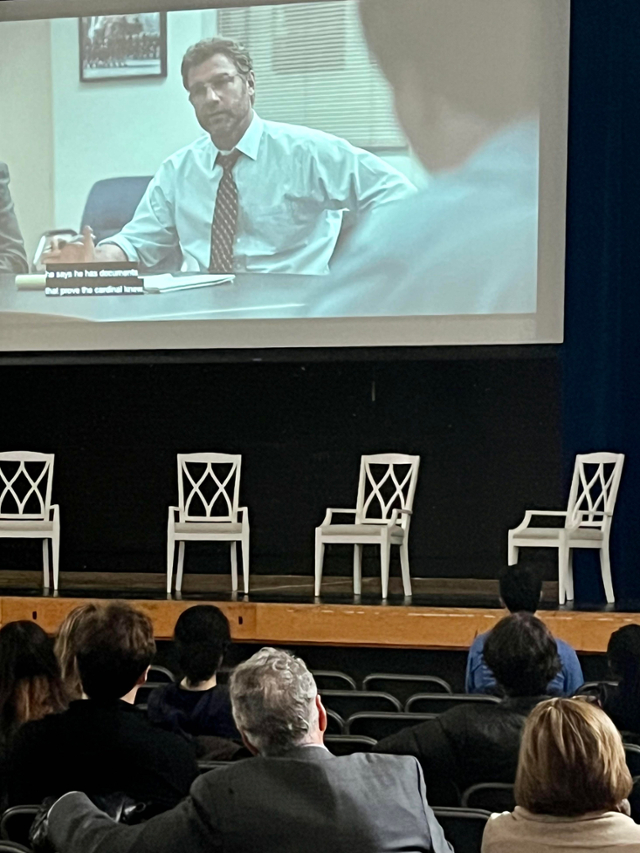
Baron told the crowd he had watched the film eight times around its release in 2015, but hadn't seen it since then until this screening at Brandeis. He and McNamara agreed the Spotlight screenwriters did a great job capturing the truth. "Spotlight got most of it right," McNamara said. "The screenwriters made an effort to get the culture of the newsroom and of Boston."
Baron said he was grateful they published this serious, sensitive investigation in a time before social media. “Twenty years ago,” Baron remarked, "nobody was off tweeting whatever they want, whenever they want."
In contrast, he thought the way the early internet played an important role by enabling the rapid global distribution of the Globe's clergy sex abuse investigation. “Spotlight became as big as it did because of the internet," he said, mentioning how someone once called this investigation the "first big internet investigation."
Baron said the investigation showed the importance of objectivity, a key theme of his Brandeis residency. "You have to use your own independent judgment and your own independent standards and stick to them."
—Rachel Rosenfield
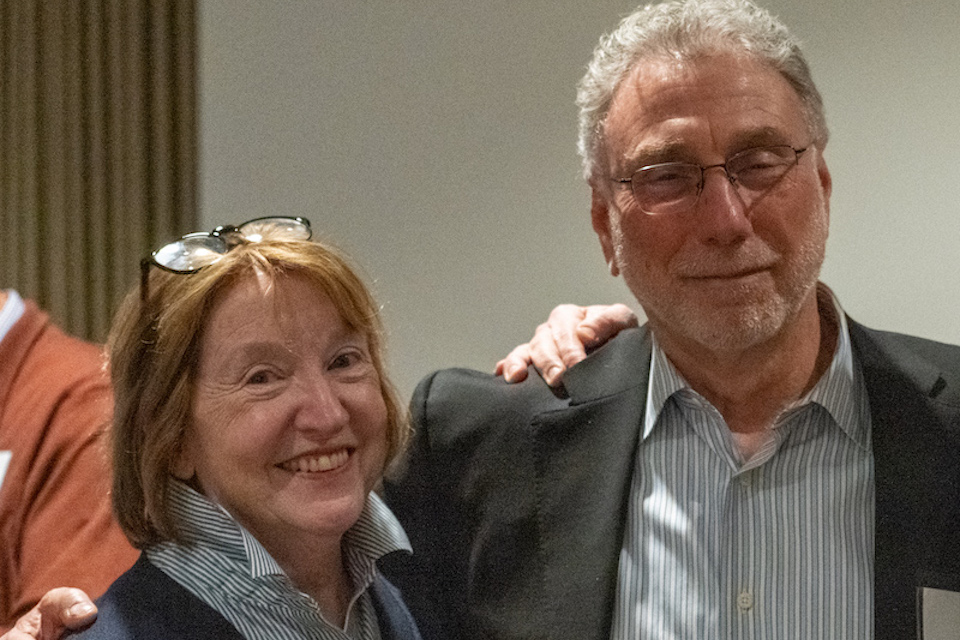
Engaging in Ethics
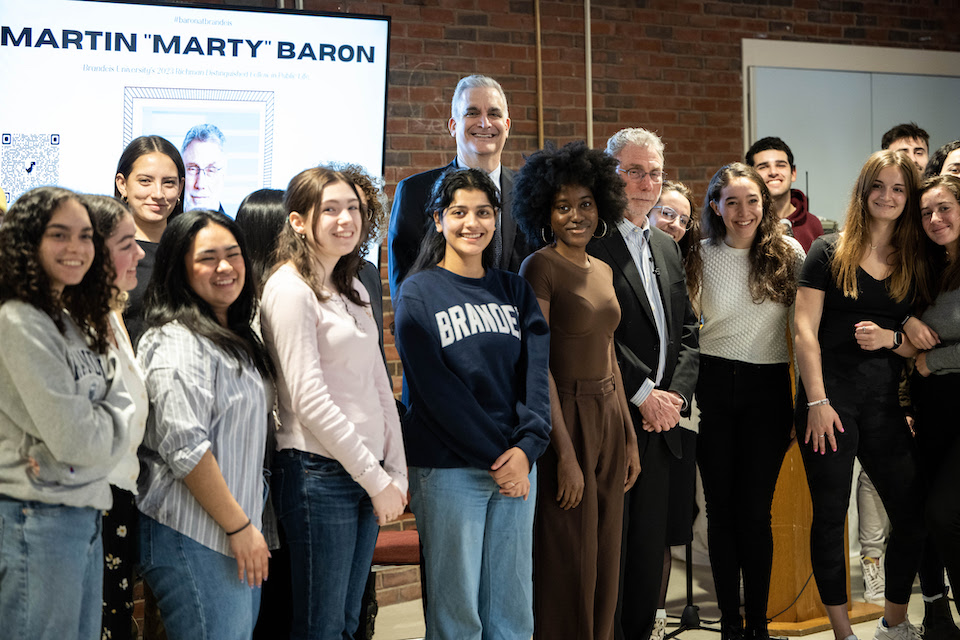 Photo by Gaelan Morse.
Photo by Gaelan Morse.
On Thursday, March 16, Baron joined Prof. Neil Swidey’s Journalism Ethics course — as well as students from the classes led by professors Ann Silvio and Adriana Lacy — to discuss news judgment and the ethical challenges facing modern newsroom leaders. Brandeis students of all disciplines and majors attended, asked questions, and engaged in the discourse.
In Defense of Objectivity
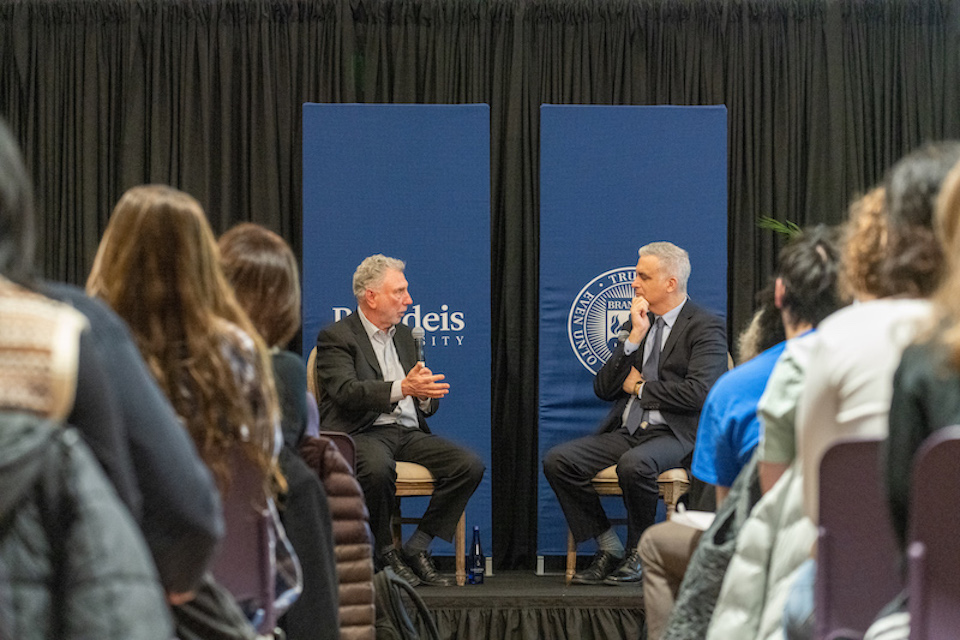 Photo by Jack Yuanwei Cheng.
Photo by Jack Yuanwei Cheng.
During his keynote lecture, Baron spoke about objectivity and what journalists owe the public. "Objectivity has to stay. Our profession will suffer horribly in public trust if it does not," he said in response to a recent report on the diminishing state of objectivity in journalism. A turn against objectivity, he stressed, would contribute to political tribalism and polarization— forces that journalists must try to counteract.
In fields like law, medicine, and business, Baron stressed, objectivity remains a steadfast standard. Why not journalism? "Journalists investigate when we find it missing, particularly when it leads to acts of injustice," he said. The term at the center of Baron's speech is not only accepted outside of journalism, but expected.
Baron emphasized that objectivity in journalism is found in the reporting process. While people aren't objective, the method of practicing journalism can be. It starts in humility, open-mindedness and asking thoughtful questions. "We don't start with answers. We go seeking them," he said. Verification rounds out the practice.
Other topics in his lecture included misconceptions about objectivity — that it is both-side-ism reporting — and a call for empathetic and equitable reporting. Baron emphasized the importance of going into a community and actually talking with the people there to think more broadly about other people's experiences. "Every individual's life experiences is inescapably narrow...and if there are constraints on our ability to understand a world beyond our own, we, as journalists, should strive to overcome them."
—Jillian Brosofsky
Baron's Defense of Objectivity In The Media
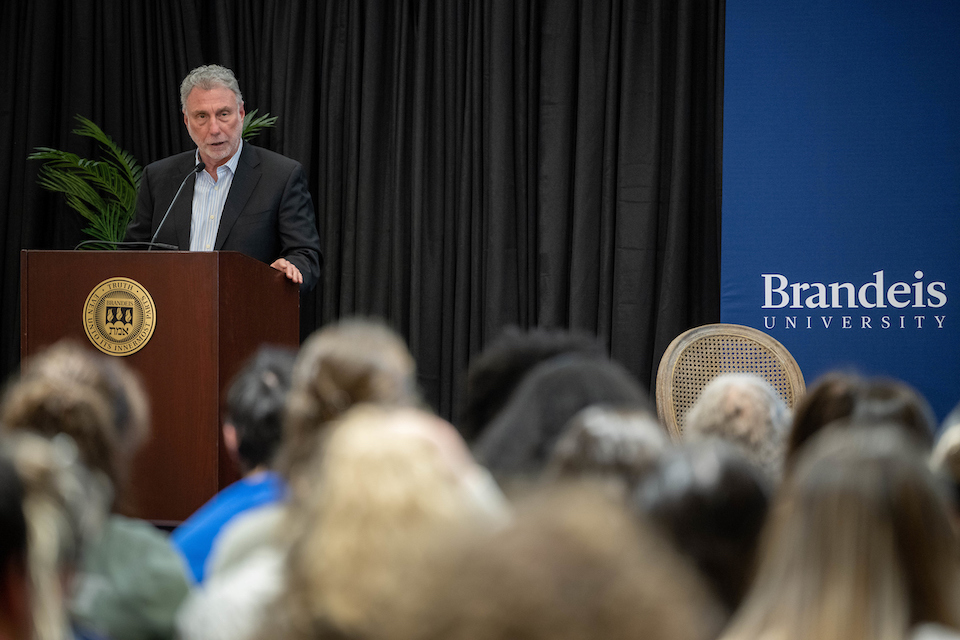
- Read "Defending objectivity in journalism: Martin Baron honored with Richman Fellowship" by Jarret Bencks for BrandeisNOW.
- Read "We want objective judges and doctors. Why not journalists too?" by Martin Baron, the op-ed piece he turned his Brandeis speech into for The Washington Post.